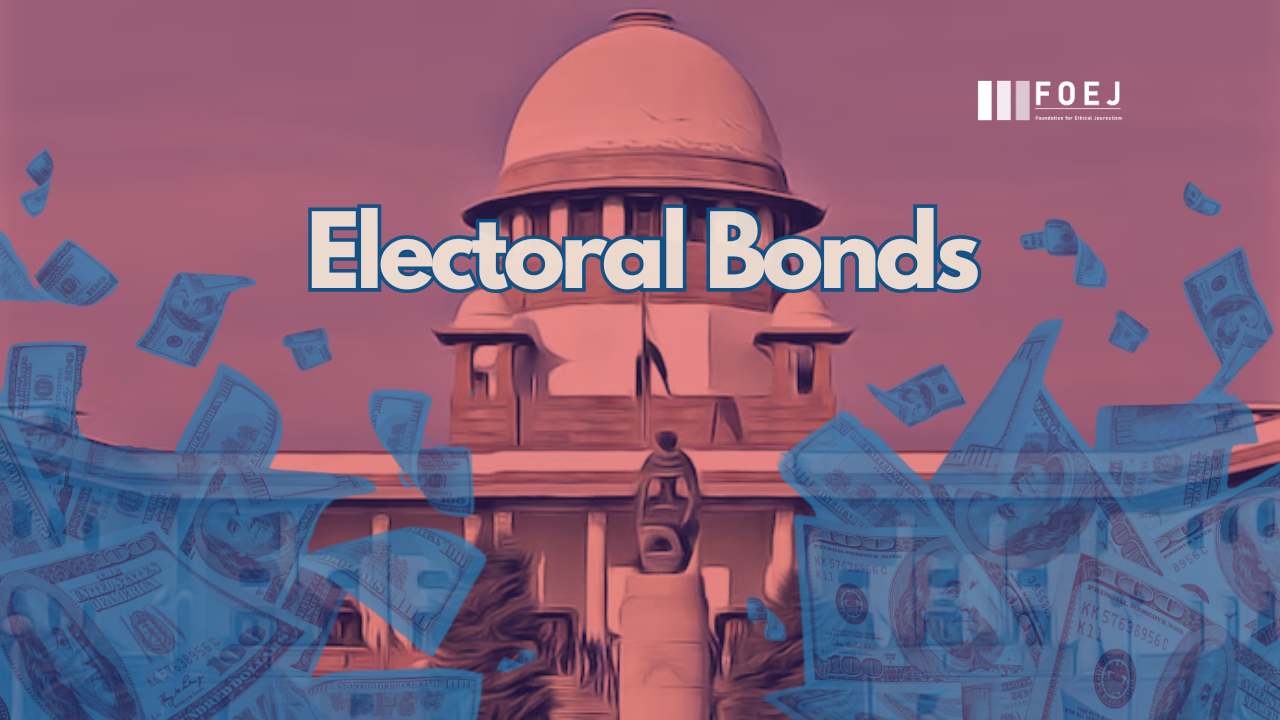On Monday, the Supreme Court dismissed the State Bank of India’s (SBI) plea to extend the deadline for disclosing details of electoral bonds encashed by political parties after April 12, 2019.
Initially, the court had set the deadline for March 6, but the SBI requested an extension until June 30. However, a five-judge Constitution bench, led by Chief Justice of India (CJI) DY Chandrachud, alongside Justices Sanjiv Khanna, BR Gavai, JB Pardiwala, and Manoj Misra, ordered the SBI to disclose the details by March 12, rejecting the extension plea. The details required included information about purchasers, the denomination of bonds, and dates of encashment.
The bench cautioned the SBI about contempt of court if it failed to comply.
“While we are not exercising the contempt jurisdiction, we place SBI on notice that this court will proceed against it for willful disobedience of court if it does not adhere to the directions issued by the court,” the order said.
“Directions of this court require SBI to disclose information that is already available with it. The FAQs on electoral bonds state that the KYC documents must be submitted by the purchaser each time the bond is purchased, irrespective of whether the purchaser has a KYC-verified purchaser account. Thus, details of the EB purchased and directed to be disclosed are readily available,” the order added.
The bench observed that the information regarding electoral bonds purchased and encashed by political parties could be found in authorized branches and easily collated.
“The current account of the political party is only in four authorized branches. Thus, details of EB encashed by political parties will be available in these four branches, and the slips, etc., will have to be deposited with the main bank, and this process was followed,” the bench observed while rejecting the plea.
The Argument
SBI had submitted a large number of datasets to decipher, with a total of 22,217 bonds purchased between April 2019 and February 2024, leading to 44,000+ datasets since there are two silos of information. However, the court refused to accept it, emphasizing the necessity of compliance with its directions.
Irrespective of the objections raised by the SBI, citing difficulties in collating information, the Court emphasized the bank’s possession of purchaser details through the Know Your Customer (KYC) process.
“The FAQs indicated that for every purchase, there has to be a separate KYC. So you have the details already,” the CJI remarked.
“I have full details on who purchased the bond, and I have full details on where the money came from and which political party tendered how much. I have to also now put the names of the purchasers. The names have to be collated and cross-checked with the bond numbers,” Salve replied.
In response, the court asked them what they had done in the last 26 days and said that there was a degree of candor expected from SBI as to this being the work that was expected, and this has been done.
“Work is done from form to form. It will take three months more. I cannot make the mistake; otherwise, I will be sued by donors, etc.,” Salve insisted.
“You accept that there is no difficulty in giving details of who purchased, etc., so in 26 days at least 10,000, etc. must have been collated,” said Justice Khanna.
Furthermore, the court reiterated its earlier decision to invalidate the Electoral Bonds Scheme, criticizing it for facilitating unchecked political funding.
It asked the SBI to disclose the details tomorrow. “In view of this, the SBI application …is dismissed. SBI is directed to disclose the details by the close of business hours of March 12, 2024,” the bench said, also asking the ECI to “compile the information and publish the details in its official website, no later than by March 15, 2024.
What is the Electoral Bond Scheme?
The Electoral Bonds Scheme, introduced through the Finance Act of 2017, allowed anonymous donations to political parties. However, several petitions challenging its transparency and alleging unchecked funding prompted the Court to strike down the scheme. The Court deemed electoral bonds insufficient to curb black money and ordered the public disclosure of related details.
The electoral bonds scheme allowed donors to anonymously send funds to a political party after buying bearer bonds from the State Bank of India (SBI).
It was introduced through the Finance Act, 2017, which in turn amended three other statutes: the Reserve Bank of India Act, the Income Tax Act, and the Representation of People Act.
Various petitions were filed before the top court, challenging the claim that the act has opened doors to unlimited, unchecked funding by political parties, and seven years later, the apex court finally rejected the claims of the central government that the bonds are transparent.
The Court directed the public disclosure of electoral bond details and emphasized the need for more effective measures against black money in politics.









